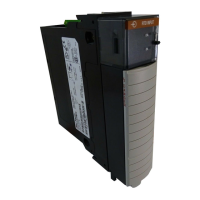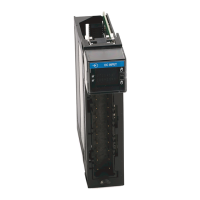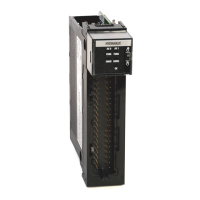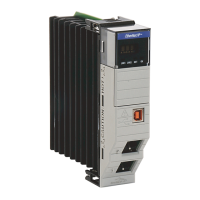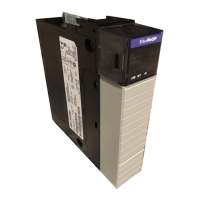Rockwell Automation Publication 1756-UM058G-EN-P - November 2012 63
Common Module Features Chapter 3
Time-scheduled Output Control
Time-scheduled output control is available for these modules:
• 1756-OB16IS—Provides time-scheduled output control in CST time for
outputs 0…7. Allows for schedules with a minimum interval of 100 µs.
• 1756-OB16IEFS—Provides time-scheduled output control in CIP Sync
time for outputs 0…15. Allows for schedules with a minimum interval of
5µs.
By using the time-scheduled output control feature, the module can turn the
outputs On or Off at a scheduled time. You can set the time for the output to
turn On or Off in program logic. The modules manage the time locally, so that
the output is turned On or Off at the specified time.
MAOC Instructions with Time-scheduled Output Control
The Motion Axis Output Cam (MAOC) instruction provides position-based
control of outputs by using position and velocity information of any motion axis.
When the 1756-OB16IS or 1756-OB16IEFS module is specified as the output
destination for the MAOC instruction, the MAOC instruction automatically
handles time-based scheduling for outputs. The benefit of using output
scheduling in this manner is that the resolution of the output control is improved
from the motion coarse update rate (typically 1…32 ms) to 100 µs for outputs
0…7 on the 1756-OB16IS module and 10 µs for outputs 0…15 on the 1756-
OB16IEFS module.
You can also use outputs 8…15 on the 1756-OB16IS module with the MAOC
instruction. However, only outputs 0…7 have 100 µs resolution. Outputs 8…15
are updated at the motion coarse update rate.
For more information about using the MAOC instruction with scheduled
output modules, refer to the Position-based Output Control with the
MAOC Instruction Application Technique, publication 1756-AT017
.
Module Major Revision Considerations with Timestamping
When using timestamping for inputs or diagnostic timestamping of I/O
modules, the following conditions may occur depending on the module’s major
revision:
• If the module has a Major Revision = 1, it always returns a positive
timestamping value.
• If the module has a Major Revision > 2, it returns a negative timestamping
value until the module is synchronized with the owner-controller and the
first change of state condition occurs.

